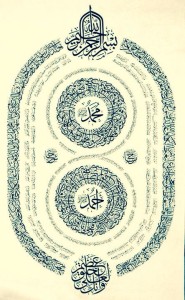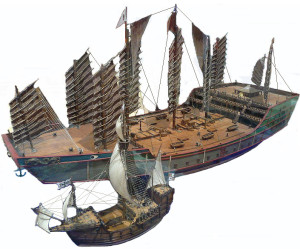 There have been many great Islamic travellers in history, but Ibn Battuta was Histories greatest explorer, his travels began when he was 20 years old in 1325. His main reason for traveling was to go on Hajj, or Pilgrimage to Makkah, but his traveling went on for almost 29 years and he covered around 75,000 miles visiting the equivalent of 44 modern countries all of which where under the governments of the various Muslim Khalifs, or “Dar al-Islam”, His travels took him from one end of the Islamic world near China to the other in west Africa visiting the Kingdom of Mali.
There have been many great Islamic travellers in history, but Ibn Battuta was Histories greatest explorer, his travels began when he was 20 years old in 1325. His main reason for traveling was to go on Hajj, or Pilgrimage to Makkah, but his traveling went on for almost 29 years and he covered around 75,000 miles visiting the equivalent of 44 modern countries all of which where under the governments of the various Muslim Khalifs, or “Dar al-Islam”, His travels took him from one end of the Islamic world near China to the other in west Africa visiting the Kingdom of Mali.
Near the end of Ibn Battuta’s own life, the Sultan of Morocco insisted that He dictate the story of his travels to a scholar, that work came to be called “Rihla – My Travels.”, It is known today as “The Travels of Ibn Batuta.”
Another of histories major explorers was Zheng He, who was Chinas greatest Explorer. He was born in 1371 in the southern China region of Yunnan to a Hui family (a Muslim Chinese ethnic group). “His birth name was Ma He. In China, the family name is said first, followed by the given name. “Ma” is known in China as short for “Muhammad”, Both his father and his grandfather were able to travel all the way to Makkah and complete the Hajj, so Zheng He came from a devout Muslim family.”
“In 1405, when his childhood friend Zhu Di became emperor he decided to send out a giant fleet of ships to explore and trade with the rest of the world, he chose Zheng He to lead the expedition (Zheng was an honorific title given to him by the Emperor). This expedition was massive. In all, almost 30,000 sailors were in each voyage (undertaken). Between 1405 and 1433, Zheng He led 7 expeditions that sailed to present day Malaysia, Indonesia, Thailand, India, Sri Lanka, Iran, Oman, Yemen, Saudi Arabia, Somalia, Kenya, and many other countries. It is probable that during one of his journeys, Zheng He was even able to go to Makkah to complete the Hajj.”
“Zheng He was not the only Muslim on these expeditions. Many of his advisors were also Chinese Muslims, such as Ma Huan, a translator who spoke Arabic and was able to converse with the Muslim peoples they encountered on their journeys. The ships Zheng He commanded were up to 400 feet long, (Dwarfing) many times the size of Columbus’s ships that sailed across the Atlantic.”
 “Zheng He and his Muslim advisors regularly promoted Islam wherever they traveled. In the Indonesian islands of Java, Sumatra, Borneo and others, Zheng He found small communities of Muslims already there. Islam had started to spread in Southeast Asia a few hundred years before through trade from Arabia and India. Zheng He actively supported the continued growth of Islam in these areas.”
“Zheng He and his Muslim advisors regularly promoted Islam wherever they traveled. In the Indonesian islands of Java, Sumatra, Borneo and others, Zheng He found small communities of Muslims already there. Islam had started to spread in Southeast Asia a few hundred years before through trade from Arabia and India. Zheng He actively supported the continued growth of Islam in these areas.”
“Zheng He established Chinese Muslim communities in Palembang, and along Java, the Malay Peninsula, and the Philippines. These communities preached Islam to the local people and were very important to the spread of Islam in the area. The fleet built masjids and provided other social services the local Muslim community would need.”
“Even after the death of Zheng He in 1433, other Chinese Muslims continued his work in Southeast Asia, spreading Islam. Chinese Muslim traders in Southeast Asia were encouraged to intermarry and assimilate with the local people on the islands and Malay Peninsula. This brought more people to Islam in Southeast Asia, as well as strengthened and diversified the growing Muslim community.” He is seen as one of the greatest figures in spreading Islam in Southeast Asia, which is now one of the largest centres of Islam on earth.

